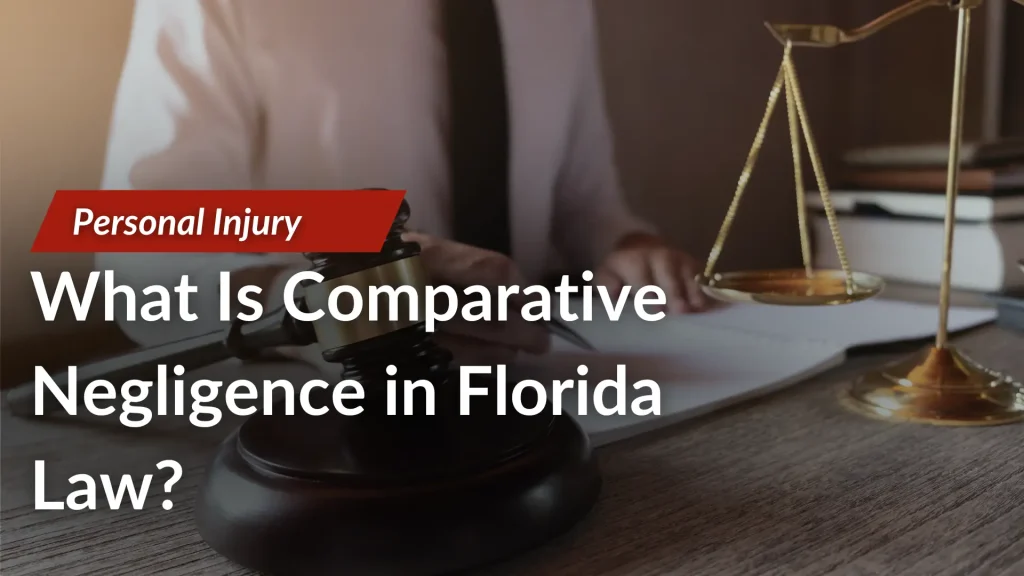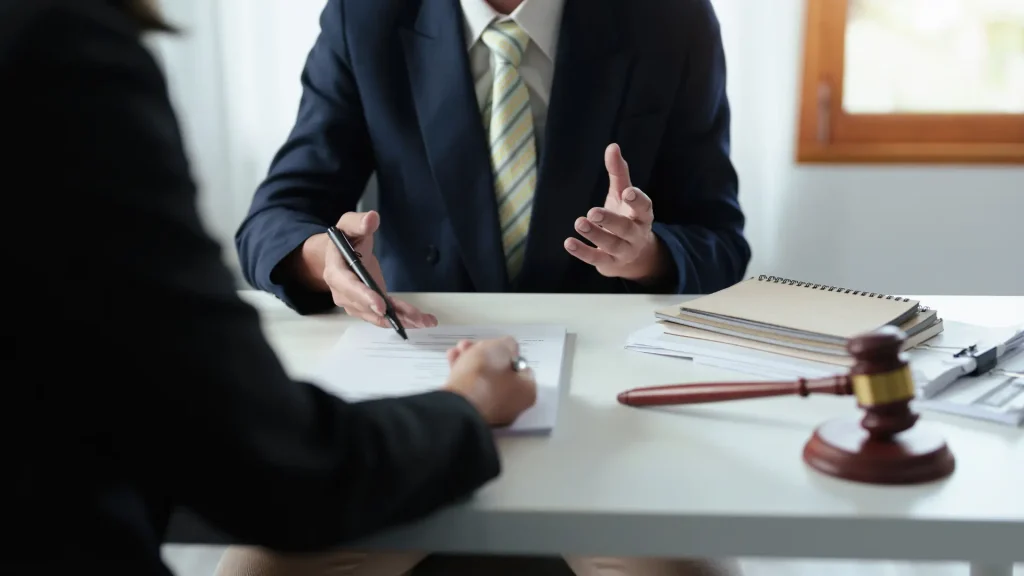 If you sustained injuries in an accident and think you might share some blame, you’re likely concerned about your compensation. In Florida, the concept of comparative negligence means an insurer or court could reduce your compensation depending on your actions. However, this doesn’t mean you’re out of luck. It is important to determine who was at fault in the accident, but if you’re wondering what comparative negligence is in Florida law, we have the answers you need.
If you sustained injuries in an accident and think you might share some blame, you’re likely concerned about your compensation. In Florida, the concept of comparative negligence means an insurer or court could reduce your compensation depending on your actions. However, this doesn’t mean you’re out of luck. It is important to determine who was at fault in the accident, but if you’re wondering what comparative negligence is in Florida law, we have the answers you need.
The Tampa personal injury attorneys at Jurewitz Law Group Injury & Accident Lawyers can gather evidence to minimize your role and maximize your compensation. Don’t let fear of partial blame keep you from getting the money you need. Here’s how comparative negligence works in Florida.
What Does “Comparative Negligence” Mean in Personal Injury Cases?
Comparative negligence is a legal concept that determines how much compensation you can receive if you contribute to an accident. It’s a way to distribute responsibility between all parties involved in an accident. In other words, if your actions played a role in an accident, you could see your compensation reduced.
How much compensation you lose depends on the laws in your state and your degree of fault. Accordingly, there are three main types of comparative negligence systems in the United States:
Pure Contributory Negligence:
In a pure contributory negligence system, you cannot recover any compensation if you contributed to the accident in any way. This is the most strict form of negligence law, and only a few states use it. Fortunately, Florida does not use this system.
Pure Comparative Negligence:
Under pure comparative negligence, your compensation is reduced by your percentage of fault. For example, if you bear 30 percent of the blame for an accident, you lose 30 percent of your compensation. In pure comparative negligence states, you can recover compensation even if you bear most of the blame for an accident.
Modified Comparative Negligence:
Modified comparative negligence is the most common system in the U.S. In this system, you can only recover compensation if your degree of fault is less than a specific percent specified by state law, most often 50% or 51%. If you’re partially at fault and it doesn’t exceed the state’s legal threshold, your compensation is reduced by your level of fault.
Florida’s Comparative Negligence Law
People often ask, “Is Florida a pure comparative negligence state?” Unfortunately, the answer is no. Florida law uses a modified comparative negligence rule to award compensation when multiple parties share blame for an accident. Specifically, Florida uses a 51% bar in these cases. So, you can recover compensation as long as your level of fault is 50% or less.
A Hypothetical Example of Comparative Negligence in Florida
Imagine walking through a grocery store when you slip and fall on a wet floor. The store failed to give warning signs, so they’re clearly at fault. However, you also looked at your phone and didn’t notice the spill, which means you share some responsibility.
In this situation, a court might find you 40 percent at fault for not paying attention. However, that means the store would be 60 percent at fault for not warning customers of the hazard. Because Florida uses a modified comparative negligence system, you could still recover compensation in this example.
In this example, you would lose 40 percent of your total compensation, reflecting your share of the fault. So, if your losses are added to $10,000, you would receive $6,000 after the reduction.
Minimizing Your Level of Fault in Comparative Negligence Cases
If you contributed to an accident, finding ways to minimize your level of fault can increase your compensation. In order to do this, you’ll need solid evidence that supports your side of the story. Here are some types of evidence that can help:
Photographs and Videos:
Pictures or videos of the accident scene can show hazardous conditions, like a wet floor or broken equipment. This visual evidence can help demonstrate that the other party bears most of the responsibility for what happened.
Witness Statements:
Eyewitnesses who saw the accident can provide valuable testimony. Moreover, their statements can support your claim that the other party bears most of the blame for your injuries.
Expert Opinions:
In some cases, experts can testify about what caused the accident. For example, a safety expert might testify that a store’s failure to maintain safe conditions caused your injuries.
Medical Records:
Your medical records can show the extent and nature of your injuries. Accordingly, they can help establish a direct link between the accident and your injuries, supporting your claim for compensation.
Police Reports:
In cases involving motor vehicle accidents, police reports can provide persuasive evidence in your case. These reports contain the officer’s opinions on who caused the crash, which may support your claim.
How We Can Help in Cases Involving Comparative Negligence
 If you have concerns about how comparative negligence might affect your compensation after an accident, we can help. At Jurewitz Law Group Injury & Accident Lawyers, we understand the challenges of these cases and are committed to maximizing your recovery.
If you have concerns about how comparative negligence might affect your compensation after an accident, we can help. At Jurewitz Law Group Injury & Accident Lawyers, we understand the challenges of these cases and are committed to maximizing your recovery.
Our team will work tirelessly to gather evidence that supports your claim. Initially, we can collect photos, witness statements, and expert opinions to show that the other party bears most of the blame. Then, our lawyers will craft legal arguments to point out that your fault for your injury was minimal, helping you secure the compensation you need.
We know that every detail matters in a comparative negligence case. By thoroughly investigating your case and building a strong strategy, we’ll fight to protect your rights and your financial future.
Contact a Tampa Personal Injury Attorney Today for Help
You typically have two years from the date of an accident to file a lawsuit, so don’t wait to act. The Tampa injury attorneys at Jurewitz Law Group Injury & Accident Lawyers have extensive experience with these cases and a proven record of success. Let us handle the legal details while you focus on your recovery. We’re dedicated to helping you achieve the best possible outcome. Call our law firm through (619) 233-5020 now or complete our contact form for a free consultation.
Related Posts:
What Are Average Daycare Negligence Settlement Amounts in Florida?
Can You Get Punitive Damages for Negligence in Personal Injury?


